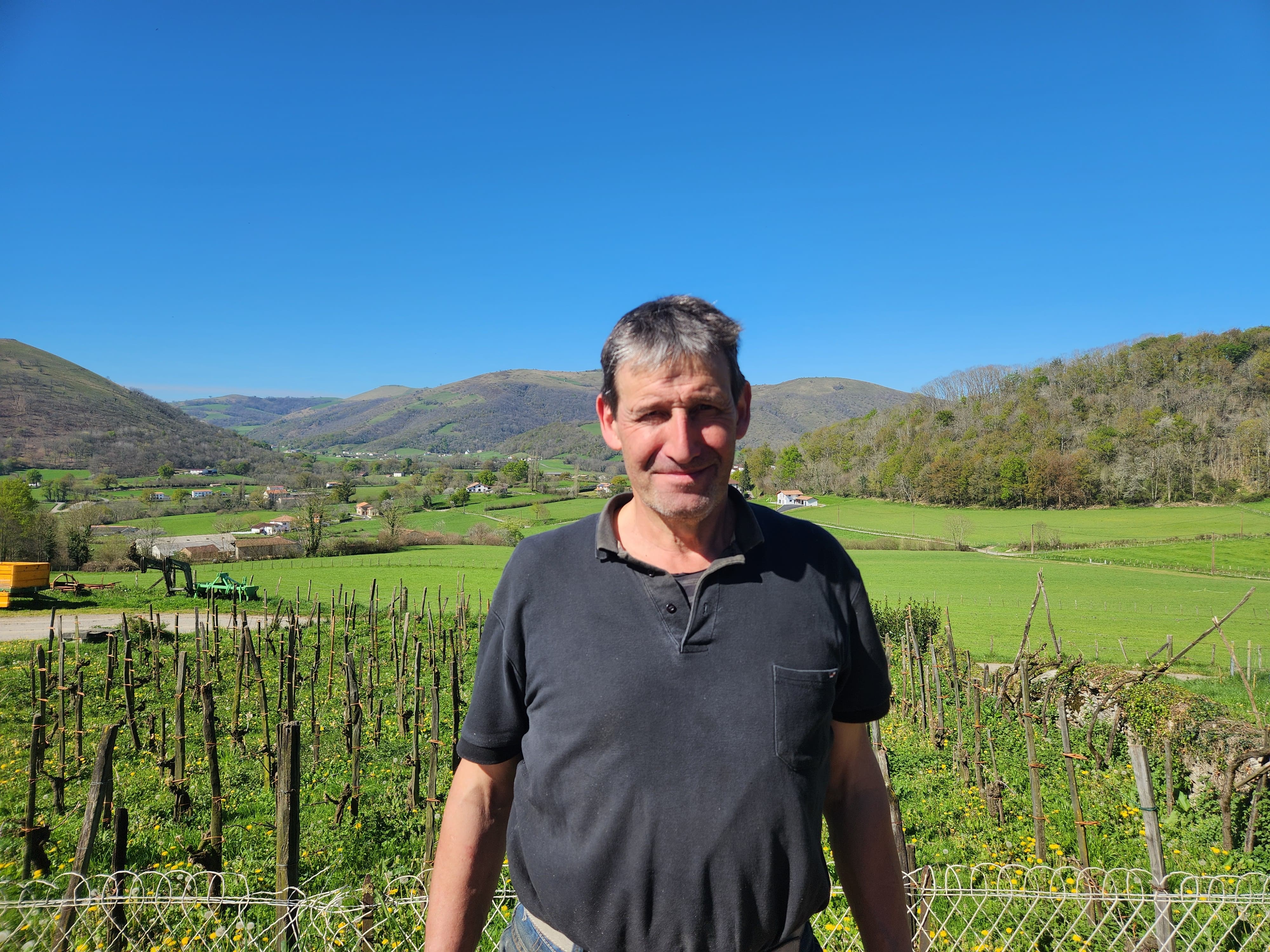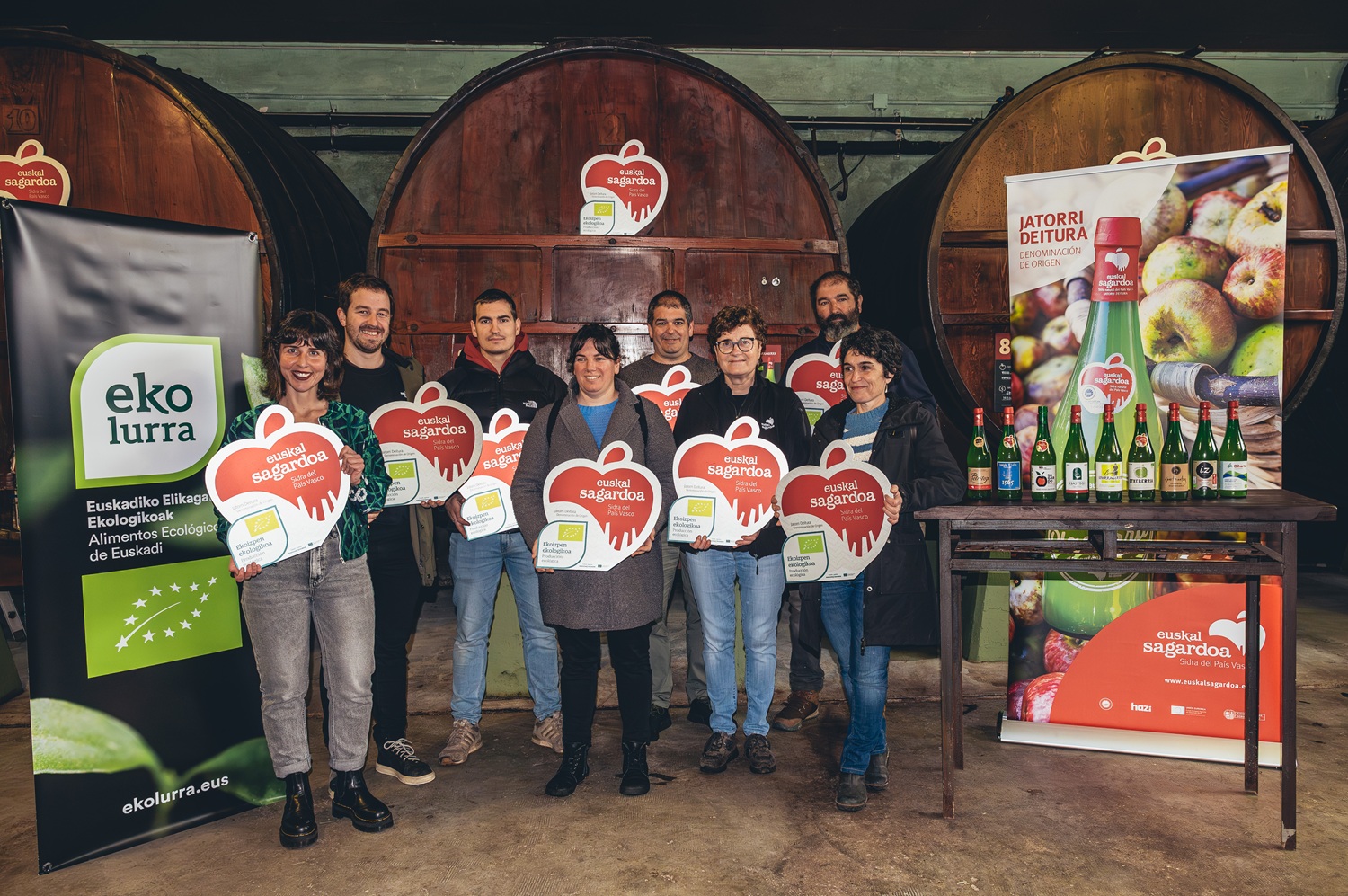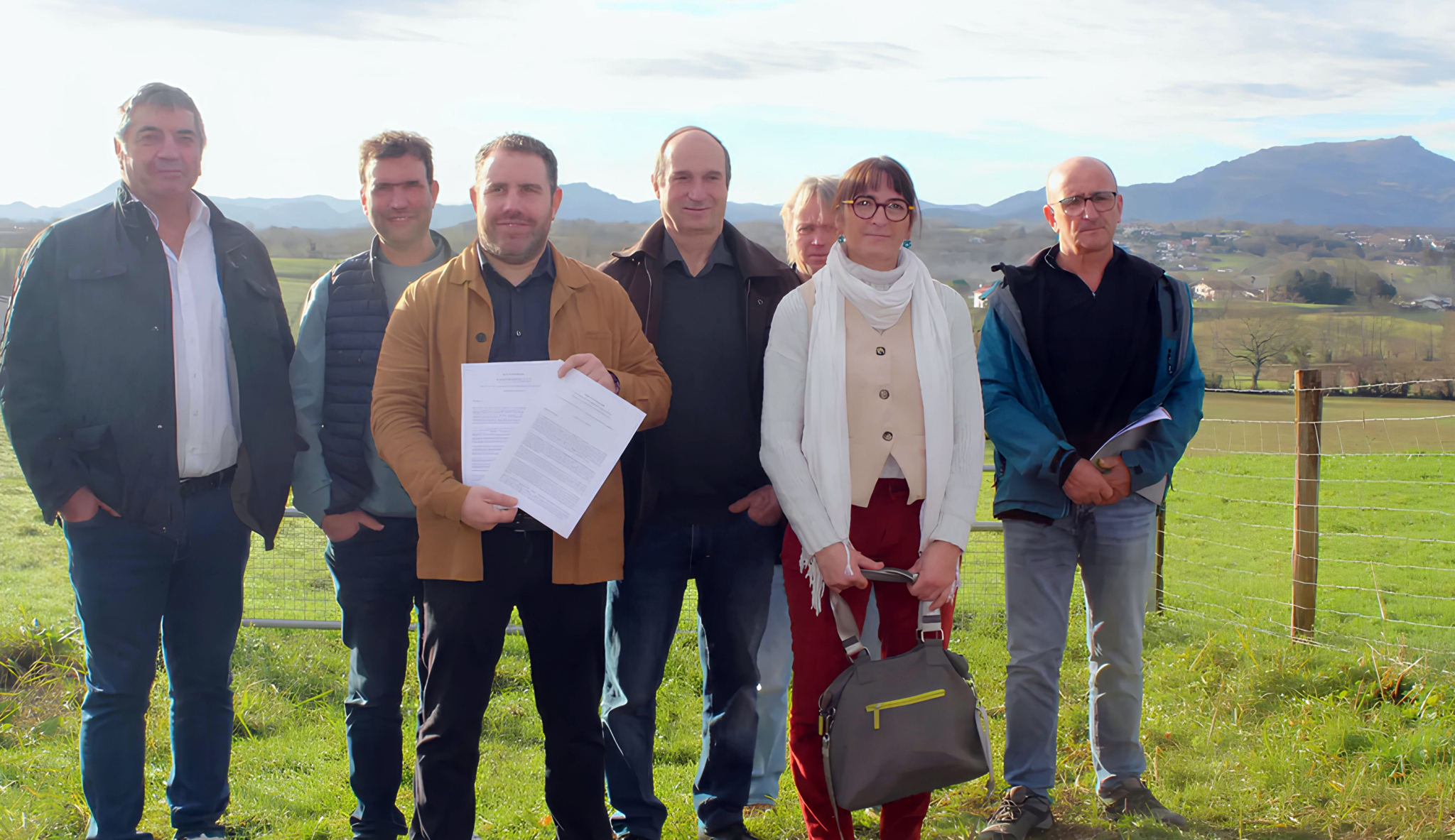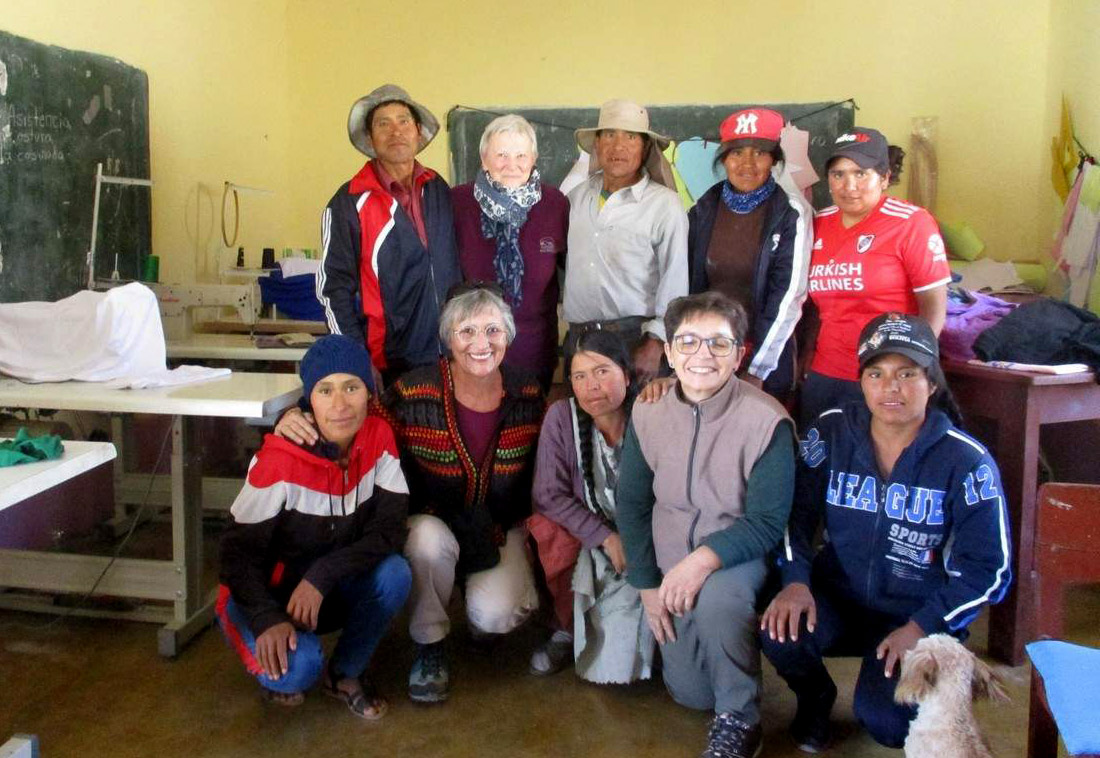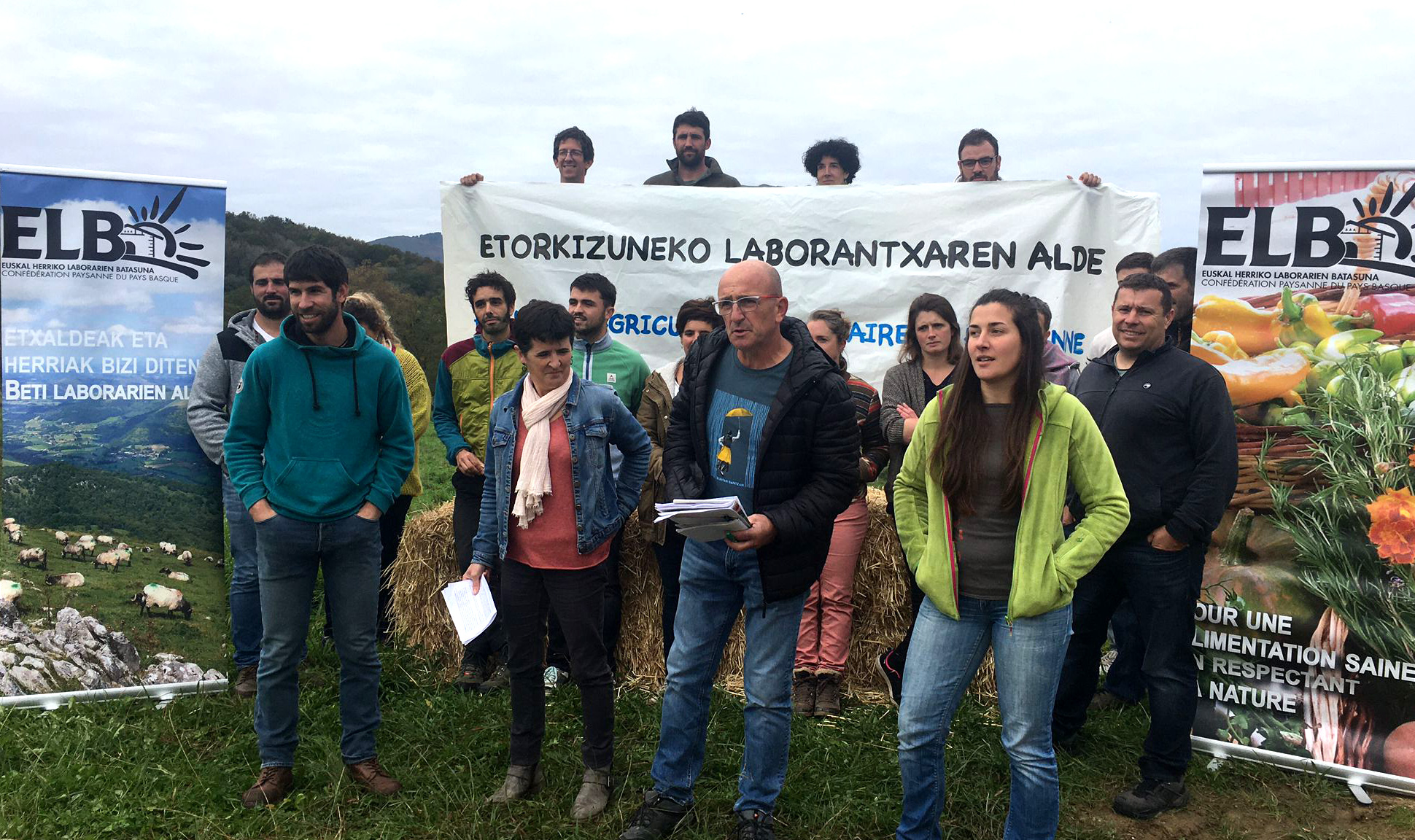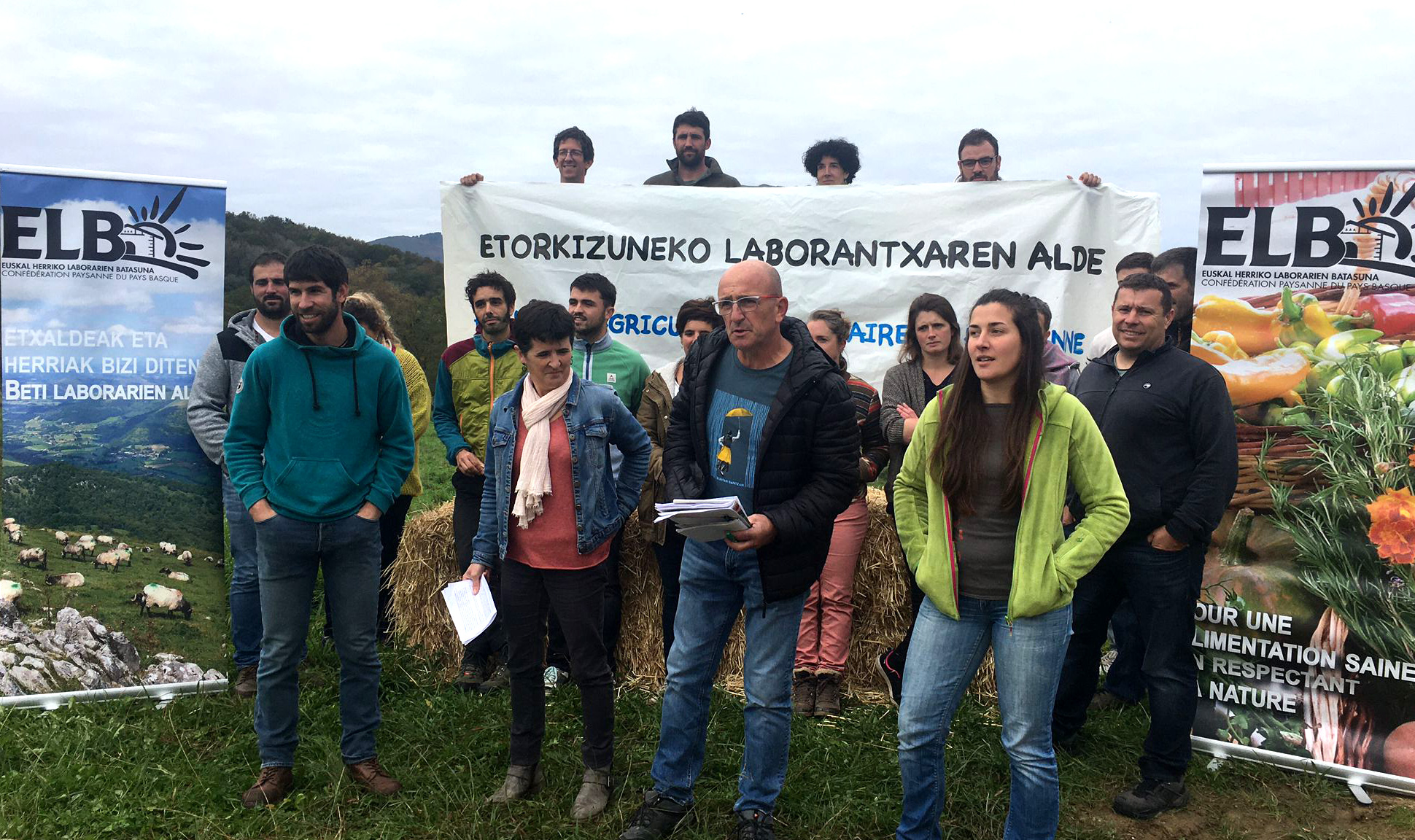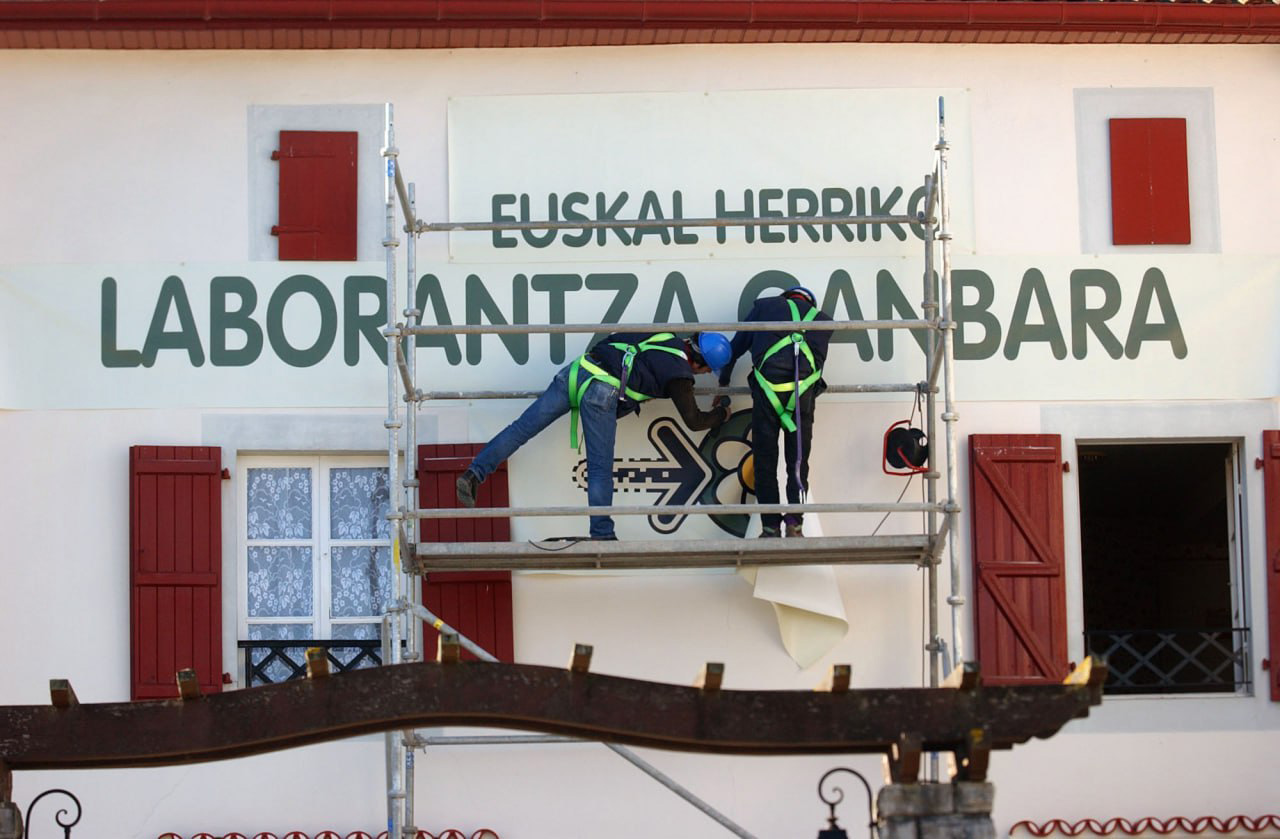From Baiona to Paris there is a movement to make farmers' concerns heard
- The movement undertaken by the Fnsea and Jeunes Campesteurs unions is expanding: the protest is joined by the peasants beyond the members and, after overcoming the discrepancies between the unions, the Confederation Paysanne union also joins the protest. As for the Northern Basque Country, the third day of blockade is celebrated on the roads of Baiona.

Countries like the Netherlands, Germany, French State, Romania, Slovakia -- farmers are on the street in several European countries. From the Netherlands, the movement is expanding with its own ups and downs, but with shared common despair. Because the workers in this sector who are disappearing are economically incorrect, representing 26% of the peasants of the French State under the poverty barrier, and often have dark desire (two days a farmer commits suicide in the French State, according to data from the MSA solidarity fund).
Over the past 20 years, the number of European farms has risen from 15 to 10 million and another 6.4 million will disappear in the next 15 years, according to the European Parliament study The Future of the European Farming Model. That is, for 35 years there are 11 million dwellings that will disappear, more than two thirds, and in the Basque Country the trend is the same. However, production has been steadily increasing, ensuring the development of agro-industry. Market liberalisation, the globalisation of cultivation and the blind pursuit of agribusiness performance are responsible for the current crisis. In explaining the context, it should be noted that the agro-industry profoundly defended and stimulated by the trade unions Fnsea and JA Jeunes Campesteurs (Young Farmers) is the guarantor of these economic logics.
That is why, in view of the concern and the call of the trade unions, whether they are affiliated or not, more and more farmers are on the roads of the French State and the Baiona area. In the case of the Northern Basque Country, the roads in the Baiona area have been blocked since Tuesday. In general, the movement is spreading fast and threatening to block Paris.
The Fnsea and the JA make the government the following demands: "immediate" financial aid and regulatory reduction, in them related to the environment - "Getting out of the inconsistency of green deal and ecological plaguing". They are also asking for an end to the negotiations on the free trade agreements.
Several altars but united in combat
Confederation Paysanne, which is committed to sustainable cultivation, has also called for its protest through a press conference on Wednesday: "The anger expressed is legitimate because the pay for the work of farmers is enormous. 25 years ago, Confederation paysanne, from Larzac to Seattle, was denouncing the consequences of liberalism."
The seriousness of the situation has led to this extraordinary union unification. Precisely because the cultivation model promoted by Fnsea and JA in recent decades clashes with the popular and agroecological model of the union Confederation Paysanne. The seriousness of the crisis and the concerns of the peasants mean that they are all on the streets and in negotiations with the government.
Confederation Paysann hears two imminent incentives: the end of prices below the cost of production and the end of negotiations on any free trade pact. Take the problem as a whole and criticize the Fnsea: "The different governments and the Fnsea have brought cultivation to this impasse, to an ultra-liberal, unfair and destructive economic system." This union proposes measures to promote the ecological transition.
This Thursday, Prime Minister Gabriel Attal will meet with the Ministers of Agriculture, Ecological Transition and the Economy to discuss the responses to farmers. If we rely on sources close to the government, the French Government could report on Thursday or Friday on some measures to deal with the crisis.

Euskal Herriko Laborantza Ganberak hogei urte bete ditu. 2005ean sorturik, bataila anitzetatik pasa da Ainiza-Monjoloseko erakundea. Epaiketak, sustengu kanpainak edota Lurramaren sortzea, gorabehera ainitz izan ditu hogei urtez.
Txotx denboraldian eredu ekologikoan ekoiztutako Euskal Sagardoaren eskaintza izango da hainbat sagardotegitan, eta hura bistaratzeko, Jatorri Deiturak eta ENEEK-Ekolurrak kupeletan paratzeko euskarria aurkeztu dute.
Lurraren alde borrokan dabilen orok begi onez hartu du Frantziako Legebiltzarrak laborantza lurren babesteko lege-proposamenaren alde bozkatu izana. Peio Dufau diputatu abertzaleak aurkezturiko testua da, eta politikoa eta sentimentala juntaturik, hemizikloan Arbonako okupazioa,... [+]
203 diputatu alde eta hiru aurka agertu dira martxoaren 11 gauean egin bozketan. Higiezinen agentziak haserre agertu dira, eta bi salaketa aurkeztu ditu FAIN Frantziako Higiezinen Federazio Nazionalak Europako Batzordean. Bata, lege-proposamenari esker botere gehiago jasoko... [+]
Laborantzaren Orientazio Legea pasa den astean ofizialki onartu du Frantziako Parlamentuak. Ostegunean Senatutik pasa da azken aldikoz. Iazko laborarien mobilizazioen ondotik, aldarrikapenei erantzuteko xedea du lege horrek. Aldiz, ingurumenaren aldeko elkarteek azkarki salatzen... [+]
Zubiak eraiki Xiberoa eta Boliviaren artean. Badu jadanik 16 urte Boliviaren aldeko elkartea sortu zela Xiberoan. Azken urteetan, La Paz hiriko El Alto auzoko eskola bat, emazteen etxe baten sortzea, dendarien dinamikak edota tokiko irrati bat sustengatu dituzte.
Datorren astean Departamenduko Laborantza Ganbarako hauteskundeak ospatuko dira Ipar Euskal Herrian. Frantzia mailako FDSEA eta CR sindikatuez gain, ELB Euskal Herriko Laborarien Batasuna aurkezten da, "euskal laborarien defentsa" bermatzeko.
Euskal Herriko Laborantza Ganbera elkartearen hogei urteak ospatu zituzten asteburuan Ainhize-Monjolosen. 2005eko urtarrilaren 15 hartan sortu zuten Lapurdi, Baxenabarre eta Zuberoako laborantzaren garapena –hori bai, iraunkorra eta herrikoia izan nahi duena–... [+]










